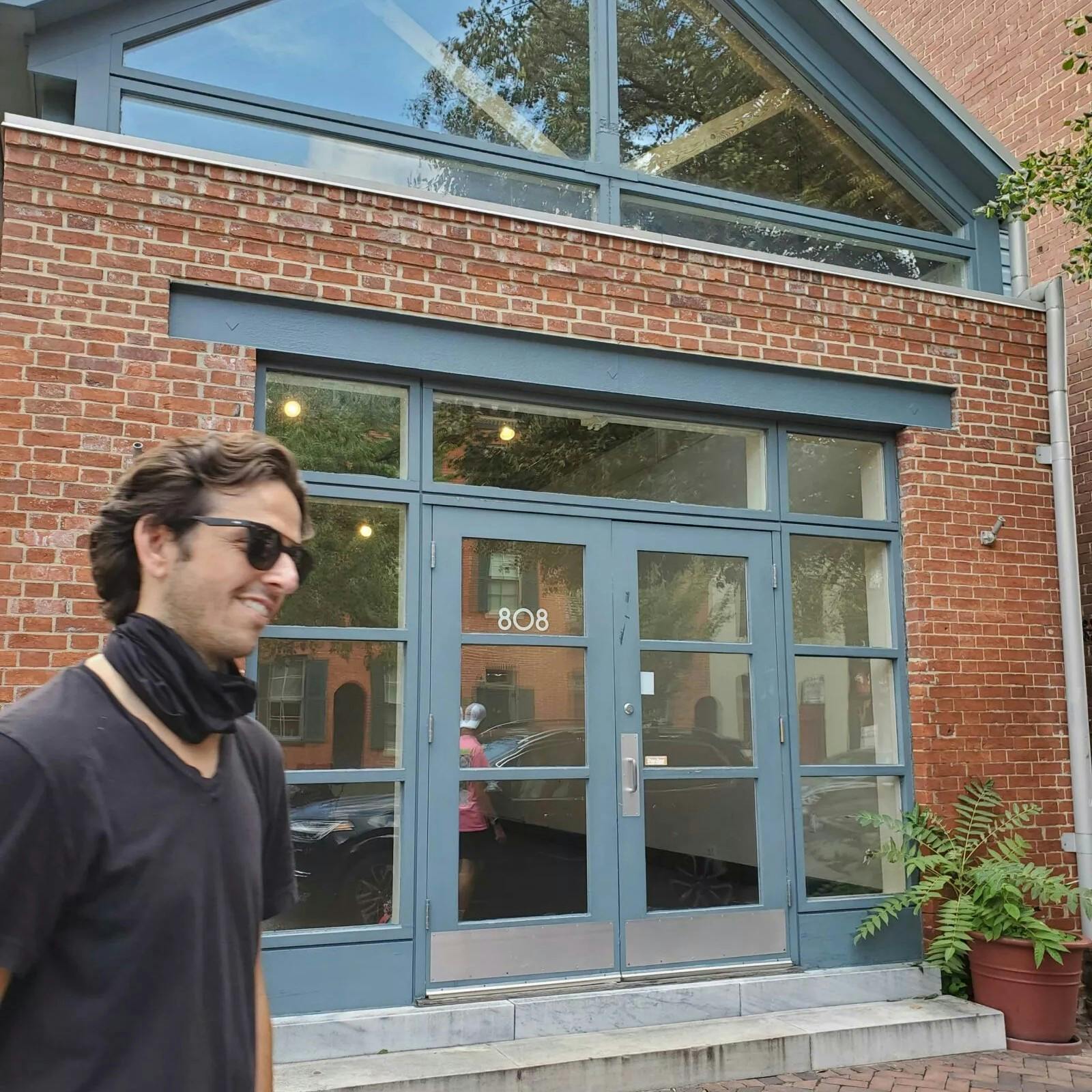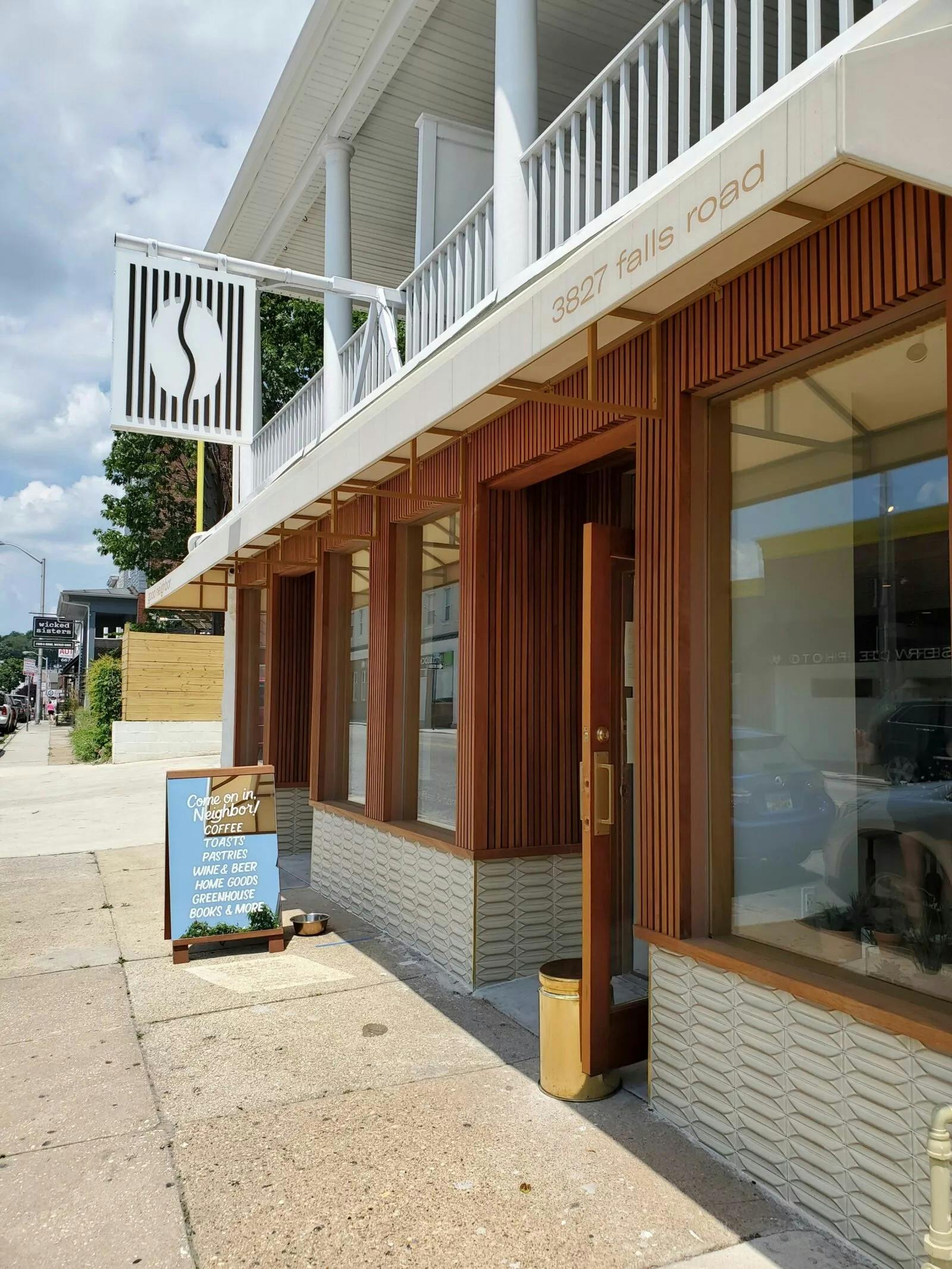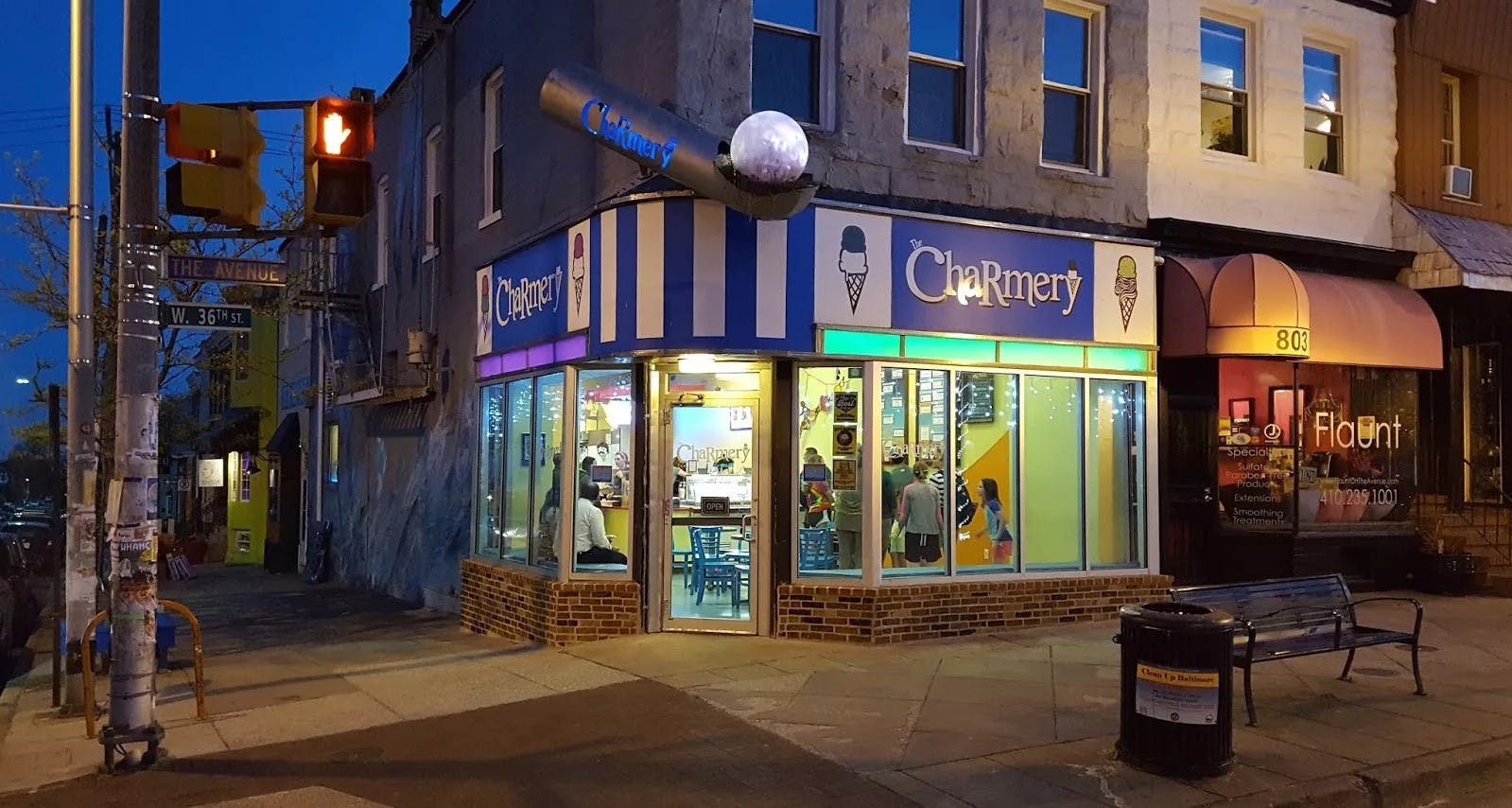It began with a 14-unit residential project in Fell's Point, Baltimore.
Through his firm Reba Holdings, Jeremy has since expanded to the development and management of income producing properties throughout MD, DC, and VA. With a critical mass of properties and tenants in the neighborhoods of Hampden and Fell’s Point in Baltimore, he is a known presence in the communities in which the firm invests.
Jeremy’s latest redevelopment project of an old hardware store into good neighbor has quickly gained a reputation as one of Baltimore’s most forward-thinking concepts, offering high-end coffee and bites, worldly housewares, locally-crafted furniture, and a floral studio. And not surprisingly, what locals consider institutions such as Paulie Gee’s, The Bluebird Cocktail Room, The Food Market, The Charmery, and Johnny Rad’s all exist as partners or tenants in Jeremy’s properties.
"A lot of people just bring a lot of BS. Jeremy knows how to get shit done. That's his strength. Going through the hay and finding the needle." - David Berg, BERG Demolition
Adding Value
Reba Holdings – named after his steadfast companion Reba the german shepherd – combines Jeremy Landsman’s innate ability to sniff out the right acquisitions with the drive to create value. The firm is a vessel for positive action, ensuring each project it commits to generates value to the communities.
Jeremy and Cohere have partnered to communicate the next phase of Reba Holdings as it grows in Baltimore, DC and beyond, thinking strategically and connecting the dots between real estate, retail, food and beverage, and how those pieces collide in communities.
In this iteration of our Unfiltered Q&A series, Cohere Partner Chris Richards sits down with Jeremy in Baltimore to get more personal about development, family, and his take on what makes real estate development so compelling.
Working with real estate isn't for everyone. What is it that got you thinking about real estate as a viable career in the first place?
There were family influences that prepared me for life in business as an entrepreneur and life experiences that really clearly presented Real Estate as a great option. My great grandfather worked in the alcohol business during prohibition times and moved into the furniture business. He purchased buildings for his furniture showroom and ended up acquiring a few others some of which were then passed down to my grandfather. He would tell me stories about my family history and involved me in the business at a young age. Later in life I began to understand how those buildings fortified the stability and happiness of the next generation.
As a kid I always had some hustle I was running with. One of the first jobs as a little kid was gum-ball machines around town. Later, in college, I started a hip-hop record label and streetwear brand called ‘Hustle Hard.’ We signed an act in Baltimore, and I was contemplating moving the business to NYC where there was more focus from industry executives. At the same time I was also thinking through what I wanted to do with my career after college — maybe music production, maybe selling cars — and met a kid in one of my classes who owned three rental houses. I bought all three houses and rented them out within a few months of meeting him. In that one deal, I learned as a college student that real estate gave me more opportunity to jump into the game than I would have in another business. The prospect of impacting a neighborhood, making money, and leveraging the little capital I had at the time was exciting. It still excites me.
What drives you to get on the phone, make calls, do deals, and work every day? What is that definition of success to you?
I’m not exactly sure what it is, but I just love it so much. I love the opportunities. When there’s the opportunity for a deal to happen I want to make the most of every opportunity and give it my all. It’s exciting placing tenants, making relationships. I love the people. Talking with people and getting to know them and what they want to do with their businesses is one of the best parts of what I do.
I think my definition of success is waking up every day and knowing my family and friends are happy and healthy. And honestly, feeling like my workday is a vacation. I’m lucky to not have to do anything I don’t enjoy doing. I love what I do, so it doesn’t feel like work.
What brings Jeremy Landsman the most joy? When you get home...phone is stashed away (maybe), what brings you joy?
My family brings me joy. Being together with my son, wife, grandparents, aunts, uncles, mom, dad, friends, food, and tennis. During the COVID lock-down, we were lucky to get the extended family to coordinate a “group quarantine” in advance of a big family beach trip. Every day was perfect to be with them during these unprecedented times — especially being together with my grandparents and my son. I grew up with a really strong family, there was a lot of love from a big close-knit family to go around, so I enjoy sharing that with him.
"The guy works 24/7 — he’s got good intuition and he just talks to people, like people. He knocks on doors and makes things happen." - Kevin Stander, KHS Investments
I like to think that family has a lot to do with how people approach other people and their working relationships. What is it about your family ties or upbringing that has allowed you to flourish?
I grew up with really good communicators. Everyone talked a lot and was totally transparent. That helped me to absorb our family history and realize how important family and relationships are.
Both of my grandfathers taught me a lot. One was very by the book – kind of a “board room” guy, the other was more street smart, working in the food manufacturing business. I learned at a young age. I wanted to be an entrepreneur like them. My father had a recruiting business for some time and used to put me on the phones after school to keep me out of trouble. I was 11 years old trying to recruit new hires for my Dad. Walking to that office, it was above a funeral home…it was supposed to be punishment. But I just wanted to get on those phones and cold call people. I loved it. Through each of these influences, I was exposed to a lot of things most people don’t encounter until they’re settling into their career.
I’ve always had a hunger. I wonder if it runs in the blood or if was it handed down by example. Either way, I’m incredibly lucky to have this drive and to have excellent mentors.
What gets under your skin most about the real estate industry today?
I’ve found that some people in this business end up with big egos based on the fact that they’ve made money in a business that, frankly, isn’t like rocket science or curing cancer.
By the way, those selfless frontline workers and professionals devoted to a cause are the real heroes to me: people who work just as hard or harder than me to really benefit others. Just because you placed a tenant or bought a strip center doesn’t make you worthy of people’s respect or admiration. Do it for a generation and grow a legacy of impacting communities, and then we can talk about it.
I can’t stand to see when people do a poor job developing a site. Real estate developments can have great positive or great negative effect…and for a long time. I can’t stand to see when a good neighborhood gets a bad development. I’ve done a few in my early years. They were a success financially, but I hold them as examples of what not to do moving forward.
From placing a 7-11 to a developing boutique coffee concept, your past projects span the spectrum thematically. Do you see a trend in where projects are headed going forward? Would you ever want to define your work as a particular niche?
The trend right now is about intertwining community into development. There’s so much that can be done online these days without even leaving your house. The way to make something a success is to create a community through your development project. Get people interested in something bigger than themselves and you build community.
At this point I don’t see a single niche appealing to me over any other, or really even benefitting the business in any particular way. I just like to find good projects where we can add value for our partners, while benefitting the community and all stakeholders involved.
I'm biased - I like to think that Baltimore is one of the most overlooked cities today. What keeps you invested here? What's the spark that makes Baltimore special to you?
I agree. Baltimore has a lot of heart. I grew up outside of DC, which is a very transient place, people come and go. Baltimore is… what’s the opposite of transient? A lot of people don’t know it was the second city in America to grow over 1,000,000 people. It has great history, great culture, old architecture, diverse neighborhoods, a lot of grit, and a great population of creative people. There’s a ton of talent here.
One of our goals is to keep the talent here through our developments. By creating special developments and developing neighborhoods, we hope some of our work has the ability to help keep some of the talent we have lost to bigger cities in the past.
In the end, Baltimore is just a cool old city. It’s got a small town feel in a great historic city on the East Coast. There aren’t many cities like it.


